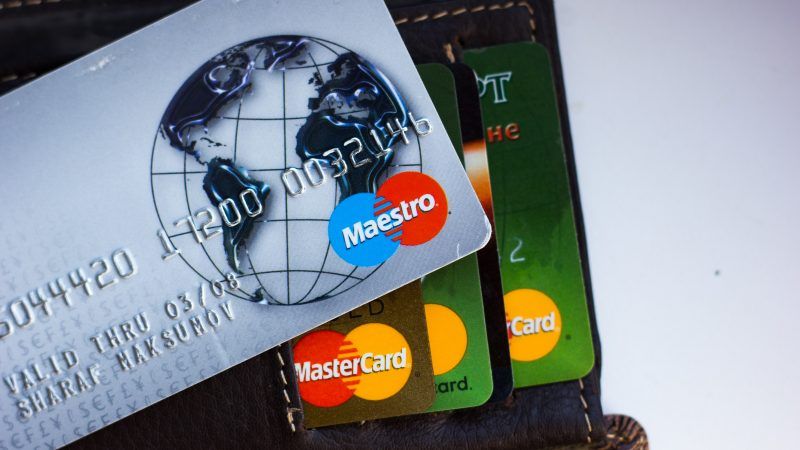Defenders of Bans on Cashless Businesses Say They're Defending Choice. They're Not.
Prohibiting businesses from going cardless ignores the choices of consumers and businesses alike.

When politicians and pundits take aim at cashless businesses, they often argue that such places violate the choices of consumers who lack bank accounts. But on closer examination, these places' commitment to choice is remarkably limited.
When New York City Councilmember Ritchie Torres (D–Bronx) introduced a bill to ban card-only establishments, for example, he said that while he uses debit cards for almost all of his transactions, "that should be a choice that I make freely as a consumer not a requirement imposed on me by a business." The ATM company Cardtronics offers a stirring, if self-interested, defense of "consumer payment choice" in written testimony supporting Torres' legislation. And Andy Callado, a financial coach for the working poor, tells Vox Media's Facebook show Consider It that while he wishes everyone had a bank account, "we can't force people to do that. We have to empower people to make their own decisions and do what's best for them."
So far, such arguments have proven persuasive enough for cashless bans to pass in Philadelphia and New Jersey. New York City, San Francisco and Washington, D.C., are all considering prohibitions on cashless establishments.
Yet for their rhetoric about protecting choice, pro-cash politicians are happy to override businesses' decisions. While dismissing the idea that we can't force consumers to have bank accounts, both Collado and Torres are more than happy to force businesses into accepting cash that they otherwise wouldn't.
Accepting cash, as Reason's Billy Binion has pointed out, comes with a number of costs, including the time it takes to count up bills and coins and the need to hire armored cars to transport this currency off-site. Cash-accepting businesses also face a heightened risk of theft. Surely businesses should also have the choice to avoid or minimize these costs if they want.
Consumers who avoid banks do so because banks come with trade-offs. ("You go in expecting one thing, and then once you look at your statement, you have this $35 fee, this $15 fee," one woman tells Considering It.) Businesses that avoid cash are doing the same thing. Forcing businesses to take cash is less about protecting consumers' choices and more about shifting the costs of these consumers' decisions onto the businesses.
For the small minority of enterprises that have decided to go cashless, the costs of cash outweigh the sales they might lose from going card-only. For other businesses—including, I suspect, most businesses in neighborhoods where banks are scarce—the calculation points the other way. Rather than imposing a one-size-fits-all standard on everyone, wouldn't it be better to let everyone sort out all these trade-offs in the marketplace?
Rent Free is a weekly newsletter from Christian Britschgi on urbanism and the fight for less regulation, more housing, more property rights, and more freedom in America's cities.


Show Comments (45)